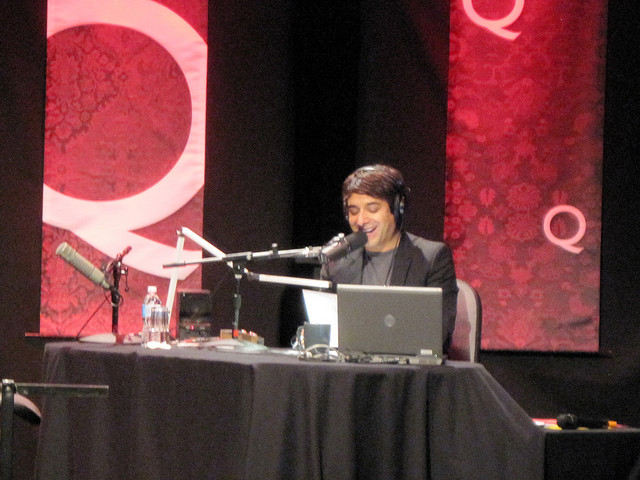One mystery of the Jian Ghomeshi affair is how he managed to be such a great interviewer. He didn’t come up through CBC ranks, like some now filling his chair. Yet they sound wooden by comparison. He had notes prepared by an assiduous, if browbeaten, staff. But the subs receive those and it doesn’t help. It’s not easy, one listener said, to get Barbra Streisand fawning over you.
He clearly loved those moments — like Brian Linehan, whose interviews with celebrities were parodied by Martin Short. Linehan’s true bliss came when Carol Channing turned to the camera and said, “This boy knows everything!” But Linehan was genuinely star-struck; he wanted the praise but it was about the star. Ghomeshi seemed curious and engaged yet, in retrospect, was that really so?
How does someone self-absorbed and deceitful produce interviews that are respectful, empathetic and concerned about issues — solely in order to aggrandize himself and control, manipulate and abuse others? Can egocentrism be massive enough to motivate you to simulate its opposite? As if the best way to get the recognition and power you crave is to impersonate humility and sincerity. And does it matter? A great interview is a great interview, you might argue.
Ghomeshi told CBC management he wanted to be the next Peter Gzowski. Gzowski, a fine interviewer also from outside CBC culture, certainly had an ego — though he didn’t fish for praise from guests. He could be cool toward staff, though if you’re sharing yourself on air three hours each day you might want to save something before and after. But his curiosity always felt genuine. You never wondered if it was all — every bit of it — in the service of something darker.
Do motives even matter in public figures? In politics — probably not. The Liberals promised a national child-care program for 10 years but didn’t deliver. Then they got it together but the NDP tossed them out of power, giving us Stephen Harper and no child care instead. Now they say they’ll provide it if we vote NDP. Who the hell cares who does it and why, as long as it finally happens? Yet something in us doesn’t want to be deceived — even if it’s pragmatically irrelevant — when we vote or turn on the radio.
When I was in my adolescent religious phase, I read one of Martin Buber’s tales of the Hasidim — a charismatic 18th-19th century movement. A disciple runs across an awesomely fervent believer. He decides to bring him to his master (the rebbe). They enter the master’s chamber but he immediately shuns the man, who flees. The master says he instantly recognized the man as one of those who serves with the flame of the impure fire — a biblical reference.
When I read that in my pious teens I was practically struck dumb. I feared I, too, was one who served with the impure fire. But everyone does to some extent, except perhaps saints. (Or them above all.) Mixed motives are the norm, like Gzowski with his ego.
It’s a question of how much of the mix is unsavoury and how unsavoury it is. It can help to acknowledge the rancid parts, to “own” them, as shrinks say, so you can see they’re a part of you, but not all — there’s admirable stuff too: conscience, empathy, etc. But if those ugly elements stay hidden, sometimes even to yourself, they may grow in the dark like mushrooms. Then if they gradually emerge into the light, it can devastate everyone.
It helps if you have friends to reveal yourself to, but it’s not clear that Ghomeshi had any real ones. And the more you conceal, the less you trust anyone professing friendship because they bought into your imposture.
Once the hidden comes to light, everything that came before can get reconfigured. I doubt you could listen to those interviews now and not hear something sinister that you hadn’t heard earlier. It’s like Ghomeshi’s Facebook post: it elicited initial sympathy, even if something rang weirdly. Then the Star published its first piece, five hours later, and the post looked self-serving. It transformed on the page. Whether it would ever be possible to listen to those interviews now and hear what once seemed so impressive is unlikely at best.
This column was first published in the Toronto Star.
Photo: Brenda Lee/flickr



